|
In our Berkeley Clinical Group, we have been discussing intergenerational trauma and what healing can look like as a collective community supporting the families and youth we serve as well. As we do the work with communities that have been historically marginalized, discriminated against and oppressed, we find it even more important to decolonize therapy and our practices along with providing support through the lens of healing centered approaches. We are learning from the works of Dr. Shawn Ginwright, Dr. Thema Bryant, and Dr. Jennifer Mullan. In addition, a lot of our team members working at Seneca have also experienced intergenerational trauma and it is equally important that we hold a space that supports their experiences providing quality care to the families and youth we serve. Please feel free to spend time watching the videos below of the above trainers and experts in our field that are doing groundbreaking work to reimagine what our work can look like with the families and youth that are served at Seneca. Blog Post Written By: Eidit Choochage, Clinical Supervisor
0 Comments
Unconditional Education Partnership’s cohort of clinicians, interns and clinical supervisors is almost 100 people strong. Our clinical strand works across the Bay Area from San Jose to Martinez, including teams in San Francisco, Richmond, Berkeley, Oakland, Hayward and parts in-between. I am incredibly lucky to provide leadership and consultation to this group of heart-and-healing-centered people. When we gather together the room generally buzzes with creativity, compassion and curiosity. People are also often totally exhausted, putting themselves last as they work late supporting a child through a crisis or finish documenting services accurately before they head home. These folks are honoring the stories of so many children. They hold the hard stuff so the kids can process and heal. No one can sustain in this work of caregiving without support and care in return. I listen to the feedback from our clinicians and know a priority is for us to find ways to deepen our connection to one another and in the work so that people feel nurtured and seen. I love the idea of moving from self-care to collective care. It can be a challenge to find ways to build resilience together. From my role, I see the importance of creating opportunities for learning and growth that we can do together, where we also get to know each other and ourselves better, to open ourselves to vulnerability, and hopefully to feel nourished. This year, we sponsored a training series that was offered to every clinician across the UE Partnership continuum. The series from Awakening Kinship Collective is called Somatics as a Liberatory Tool: Deepening our Practice. It included three workshops and three affinity spaces for staff to “experience somatic exploration and increase access to the fullness of their humanity while examining the ways that systems of harm have led to our collective disembodiment.” Awakening Kinship Collective simultaneously held three workshops for UE clinical supervisors, along with the option of an individual leadership coaching session, so that everyone in our cohort had an opportunity to deepen into this different way of knowing and growing.
Blog Post Written By: Emily Marsh, Director of Clinical Intervention Services
The demographics of our students in Oakland are ever shifting and changing. In recent years, we have started to serve more students who are recent immigrants from Mexico, Central and South America. Some of them came to the U.S. alone, many of them traveling long distances under harrowing circumstances. Some are multilingual and others are monolingual in the indigenous language of their region. Their needs and experiences are unique and diverse. Over the past two years, our program has implemented several new services tailored specifically to the immigrant experience. First, two therapists have collaborated to provide newcomer groups. These groups bring together students who are new immigrants to process their experiences and get support from their peers as well as the therapist facilitators. Topic areas include sharing cultural values and practices, celebrating their heritage, processing their immigration journeys and discussing their experience living in a new country. One group started a practice of wearing traditional dress on Friday as a way to share their cultural heritage with their larger school community. These groups were such a resounding success that they were featured in a KQED radio program. Take a listen! Second, at a middle school, a therapist has started a Spanish language parent support group. While this group is not specifically for parents of newcomer students, there is a strong focus on helping monolingual Spanish speaking parents to support the social-emotional wellness of their children. Group topics include communication strategies, adolescent development, love languages and much more! Meeting the needs of our students and families has always been at the heart of our school-based work. These new and creative interventions strategies have helped us to continue to meet those needs and build on the resilience of the immigrant communities we support. Blog Post Written By: Amy Blair, Clinical Supervisor
Is it realistic to always remain calm when we’re working with youth? Nope. And guess what? It can be productive, instructive, and ideal for us to be honest about our own dysregulation. When you pretend to be calm with youth, you are not fooling them: they see it, feel it, and might chalk it up to one more reason adults are not safe. Here is an explanation of this neurological phenomenon: “When another person gets dysregulated, we are designed to feel the dysregulation too! Think of it like your nervous system and their nervous system are saying “hello” to each other. We can partly thank our mirror neuron system for this phenomenon. When we see someone experiencing emotions, we actually imagine having the same experience. The wisdom in this is that it supports our ability to attune and have empathy. It also gives us information about what might be going on for the other person. One of the other reasons we get dysregulated is because our brains are constantly scanning our environment for safety clues and whether or not there is a challenge to overcome.” (Dion, L., 2022)  Staying honest about your emotional state when you are dysregulated in interactions with youth can lead to trust and the always important feeling of connection. First, own your feelings: “When you climb on that wall it makes me feel really nervous.” “When you hide the Uno cards it makes me feel frustrated.” Second, model the way you regulate “Wow I’m going take a break here to calm down and do three deep dragon breaths.” “I need to just stop a minute and ground myself with this fidget.” This not only demonstrates ways to regulate but also models self-awareness and expression of emotional states for our clients. The icing on the cake here is you become more attuned to your own triggers and challenges while remaining authentic. That’s self-care! Once a youth learns that you are honest about your emotions and willing to regulate yourself when with them, they are much more willing to join in or experiment with it themselves. Co-regulation becomes an incredibly useful touchpoint when a youth is distressed. “Yikes, you seem really frustrated, I can feel it, let’s do some breaths together and see if it helps.” For more information check out some of Lisa Dion‘s podcast and YouTube videos; she started Synergistic Play Therapy, which draws on neuroscience, neurosequential work, play therapy, and psychotherapy. https://synergeticplaytherapy.com/ Blog Post Written By: Laurie Kindel, Clinical Supervisor
There is a standard opener in most settings I find myself in these days, a variation of “things are so hard right now!” With the current convergence of social, political and physical upheaval, folks are tired. We search each other’s Zoom faces for connection, validation, engagement. We drop encouraging comments in the chat box or click an icon to indicate we love what we heard. Maybe someone asks the check-in question “what’s something good in your life right now?” and we search our memories for a meaningful answer. For some it is more time with a partner, for others a walk outside after work. Almost every casual conversation I have with coworkers and friends these days ends with an exchange of favorite podcasts and TV shows. We are desperate for a way to fill our free time and trying hard to come up with ways to help each other do that too. In these unprecedented circumstances of whatever week we are in, we are looking for something to help us feel good. Recently Julie Kim brought a resource to our clinical supervisor team, an infographic from the Genesis Healing Institute that opened my eyes to another way to consider how we navigate this year. The concept is Transformative Healing, and the ideas presented on this graphic filled me with a new sense of hope and courage. At best, this offers a roadmap that helps guide us through the stages of reckoning and healing that this unprecedented time presents to us. At it is simplest, it is a beautiful collection of affirmations that capture so much of what many of us are feeling and exploring right now. I share the graphic with you here and invite you to consider: 
It might be helpful to think of this as ‘less as a roadmap, more like a cycle,’ such as the stages of grief. We may go through these stages in and out of order each time we are presented with a new 2020 challenge. My hope is that you find this thought-provoking and that it offers you a new way to consider how you can survive (and thrive!?) during this unprecedented time.
In solidarity, Emily Marsh Each week, our therapists and interns meet with a licensed clinical supervisor who oversees their training and development as well as treatment of clients in their schools. Generally speaking, both licensed and unlicensed therapists meet with their clinical supervisor for individual supervision at least one hour a week, and then in a group-setting with up to seven other therapists for a weekly two-hour group supervision. These units of supervision are non-negotiable, mandated structures put in place to support clinicians who are not yet licensed and are practicing under their supervisor’s license. We use a similar model for our licensed therapists in order to support their connectedness and growth. Why so much clinical supervision?
So what goes on in there, anyway?So much of what our school-based therapists do is not visible to others. Recently a colleague asked, “What do you do in [group] supervision, actually?” Great question!
In individual supervision, the clinician typically brings areas they are struggling with in their work or successes they’d like to share. They check in about required paperwork needs, professional development goals and the logistics of the work, and spend most of the time talking about their caseload, ethical issues and intervention plans. Supervisors are always listening for risk and safety issues for clients and making sure that the clinician is monitoring their clients’ safety in addition to their treatment goals. The relationship between supervisor and supervisee is attended to, discussed, and feedback is invited in both directions to enhance the quality of the relationship. In a group supervision, up to eight therapists gather to learn from one another. With eight therapists and only two hours, we rarely have enough time to get to everyone’s clients, so the group prioritizes together how to use their time. The therapists identify themes in their work and talk through strategies for understanding their clients and responding to them. Every school year, each of our therapists spends between three and four hours across several groups to do a deep dive into their work with a chosen client. Their colleagues listen, ask questions and offer reflections to help move the therapist forward in their work. At times we read and discuss articles, watch videos or welcome a trainer into the group supervision to further develop clinical practice. Supervisors are always monitoring for safety concerns and making sure clients are always getting the best care. Experiential supervisions are some of my favorites -- that’s when we bring in interventions like play therapy techniques or art therapy activities and we try them out together. Once our therapists achieve licensure (usually they’re required to have had at least 3000 hours of supervised experience before taking their exam), we continue using a similar supervision model to support their growth. In All-In!, our licensed therapists have the option of joining a “consultation group” instead of continuing in a supervision group. The consultation group is peer-led and gives licensed clinicians the chance to practice facilitating group supervision and supporting one another. For those who are interested in becoming clinical supervisors themselves, this consultation group is a chance to practice clinical leadership. The goal of clinical supervision is to not only enhance and develop therapists’ clinical skills but also to further their professional development. Thanks for reading! Behavioral Strand HighlightIn All In, growth-mindset is part of our culture. In individual and group supervision, we are constantly discussing personal and professional growth opportunities as a result of this work. As we wrapped up 2019, the Behavioral Strands Leadership Team hosted a Seneca Career Fair. The objective of the career fair was to provide the Behavioral Team, specifically our Student Support Assistants an opportunity to meet, actively engage with, and learn from their fellow Senecans about various career tracks held within Seneca Family of Agencies. On the panel of participants were an array of representatives for positions including, but not limited to:
As we enter into 2020, “Stay Interviews" have begun. We use this interview format to inquire about plans and professional development goals for next school year. The majority of our All-In Student Support Assistants are motivated to pursue higher learning opportunities, with the hope of staying with or returning to Seneca as a Teacher, Therapist, or Data Evaluator. Additionally, many of our Student Support Assistants have followed up with Career Fair representatives to further discuss their goals and plans for moving in that direction, which is AWESOME!! So, be on the lookout for our amazing Behavioral Team. They have some aspiring teachers and therapists on the rise. Some are looking forward to starting grad school Fall 2020 and others are exploring potential Universities for Fall 2021. As Eric Thomas said, “When you find your why, you find a way to make it happen.” Clinical Strand Highlight @ Education for ChangeThe EFC Clinical Strand has had a busy first half of the school year. For our new clinicians, it was a process of learning all the ins and outs of the Clinical Intervention Specialist role: integrating into a new school site, developing a caseload, creating relationships with clients, caregivers and school partners, finding time to do documentation and finding time for self-care. For clinicians who returned to their sites, they built on continuity with clients and school partners while also adapting to ever evolving school-wide needs, a reminder that each school year is unique. Through it all, our Clinical Team’s consistency and commitment to our clients, their families and capacity building with school partners has been outstanding. Their work embodies the foundation of Unconditional Education and is truly inspiring to witness.
As we all know, data is one of the most powerful tools to inform, engage, and create opportunities for growth and also helps us make connections that lead to insights and improvements. Thus, Increasing progress monitoring efforts has been a huge focal point this year for the Clinical Team, incorporating quantitative data with qualitative data to deepen the narrative of client experiences in connection with our #datatellsastory launch. Whether connecting progress to a change in intervention or connecting a step back with a new stressor and then adjusting it, the ultimate goal is to track progress and share it meaningfully with clients and all stakeholders involved. The first months have been a learning process of navigating data collecting systems, finding ways to incorporate progress monitoring into already busy schedules, and writing meaningful goals that can be realistically tracked but with great momentum, the Clinical Strand has taken on this work head on and are looking forward to incorporating progress monitoring more seamlessly into future collaboration opportunities! Way to go team! There is an age-old question clinicians hear all the time – “What do you DO with the kids in your office?” A clinician typically takes a gulp and wonders…what AM I doing? PLAYING?!?!? Over the years, I have decidedly used play therapy as the primary model of working with kids in therapy. Play therapy is tricky to explain, since it can look a lot like simple play. A client and a therapist can be deep in the throes of a storyline that involves different races of dinosaurs battling each other to the death, spies who turn out to be counterspies (who turn out to be counterspies), and babies who require care but are also very annoying. Or a client can play Uno for several weeks, always changing the rules so that they win at the very end after a long, drawn out game. Or a client tells lie after lie, spills toys carelessly, and asks to open every drawer in the therapy office, saying they will never come back for therapy. Some of this looks like fun, boisterous play and some can be more coy and mischievous acts. In play therapy, it doesn’t matter so much what the actions may be. We are playing. What makes it a therapeutic intervention is how the clinician responds to the client and how the space and time is held intentionally. I found a straightforward infograph that highlights what the difference is between play therapy and play. I use this often, in supervisions and as a reminder to myself. The use of play therapy is based on the belief that the child is processing things through play. The idea is that play is never without important meaning, nor is any play by chance or without aim. Children use play to communicate, think through things, experience new situations, and inform their internal working models – the way they understand the world around them and their place in that world. The second important aspect of play therapy is the adult relationship. The experience of having an adult who has suspended judgement, is not moralizing or trying to formally teach, while remaining curious to allow the child to figure things out, control the story, or try different personas is a special interaction in therapy. If both pieces- free play and a holding adult relationship- are present, play therapy presents limitless ways for kids to experience disconfirming stances. “Disconfirming stances” are ways that we can support someone to have a new experience of themselves and the world, a chance to shift their internal working model if it’s become stuck or has resulted in unhealthy beliefs and behaviors. These disconfirming stances can be broad – like one client who witnessed severe violence in his family and arrived at the conclusion through play that love does not require you to destroy yourself to prove your love- or it can be very specific like the client who wanted to see different ways of playing games to make and keep friends.
Play therapy is a fantasy place, where adults don’t have to push an overt agenda, hold to a list of action steps, or make sure to check for understanding from the child. It takes a lot of intention to not take the invitation to focus on how to correct or change a child’s behavior especially with the emphasis on teaching more observable behaviors like classic coping skills. But the processing of the underlying needs of problematic behaviors is an important aspect of treatment that needs to be addressed for lasting health and strength. Play therapy offers a space where these underlying needs (questions about what happened to them, what their self-identity is, what the rules of relationships are) can be addressed to support shifts in internal working models that inform our behaviors over time. This is, in essence, the process of changing from within. In our school partnerships we have an opportunity to use multi-tiered supports as well as multi-leveled clinical interventions to address entrenched problematic behaviors. In a world that values the effectiveness of CBT and skills based programs, please don’t forget to consider play therapy as an effective intervention that can give a new avenue for our students and clients to play with the prospect of change amidst limitless possibilities. Most of us, at some point during our childhoods, have been asked the question: “What do you want to be when you grow up?” Most of the kids we work with have probably heard this question, too – probably more than once. And all of us just know implicitly that the expected answer to this question is career. Career role is a defining factor in establishing identity in our society. Even as adults, we ask similar questions. “What do you do?” is almost inevitable in the process of getting to know someone new. The answer, again, is implicitly understood to refer to your career. Yet in today’s world, it’s increasingly unlikely that any individual will remain in the same career role throughout their life. This trend will likely continue as our young clients grow up and enter the workforce, and it has certainly been true of my own career journey that brought me to Seneca. Throughout my adolescent and adult life, one aspect of my career journey has remained the same: I have always enjoyed working with children. When I was a child, this goal would have translated to a single, recognizable career identity, likely "A Teacher" or perhaps "A Nurse.” It was only as an adult that I discovered the many different avenues one can take to working with children – and since then I have tried on several of them. My first job, for instance, was working for a children's play place (similar to the more recognizable icon of Chuck E. Cheese's.) I wasn’t a teacher, and I wasn’t a nurse, but I was working with kids. Yet even at the time I knew that this was a temporary role, a “stepping stone” so to speak. Looking back, I would say that my career journey really began with the two jobs I held in college, working in research labs – first studying language and cognition, and subsequently attachment. Instead of supervising children, I was studying them – a new role, with new responsibilities, and a much broader range of required skills. Since then, I have been a special education aide, earned a Master’s in Fine Arts, taught classes on social justice & creative writing through an arts and education non-profit, set up side-gigs making art, transcribing audio, and substitute teaching, and most recently interned at my first MFT site placement with East Bay Agency for Children. Now here I am, working as a clinical intern with Seneca’s All-In program, and in May I will finish my master’s program and begin working towards licensure as a marriage and family therapist. In some ways, I see MFT licensure as a “finish line,” establishing the career path that – at least as of now – I expect to follow long-term. Yet I still struggle sometimes with the questions “What do you do?” and “What do you want to be?” At twenty-nine years old, I have already “been” many things. Each of these roles has prompted me to strengthen new skills, tackle new problems, and take on new perspectives – contributing far more, in my opinion, to my sense of who I am than any particular job title. I try to keep this in mind when working with my clients, who also cannot be defined by any one role or aspect of their identities. And if anyone asks “What do you do?” Well, I listen, learn, try my best to be of service. “What do you want to be?” Empathetic, kind, and perhaps most importantly, flexible enough that, no matter what role I find myself in, I can continue to grow as an individual. This week I’m highlighting one of our Education For Change partnership schools - Achieve Academy in Oakland’s Fruitvale district. Clinical Intervention Specialist Marianne Clark AMFT, who is also our featured staff in the blog this week, has engaged in an innovative practice at Achieve that expands her reach as a single Seneca clinician on her campus. Through building the capacity of others, Marianne and her collaborative Achieve team have been able to serve dozens of students through tier 2 Social Skills groups during the first cycle of service this year; truly an example of creatively bringing the mission of Unconditional Education to her campus. The project began with an awareness of her limitations as a single provider at the school. Using our Social Emotional Screener tool, Marianne gathered emotional and behavioral data on every student at Achieve and was able to see trends and needs across grades, classrooms, and individual students. But how could Marianne find the time in her week to provide the myriad of group services the students there would most benefit from? Her answer: she couldn’t do it on her own. Marianne realized she needed more adults to provide groups and that she could share her expertise with them as a coach and mentor. She put together a presentation on the basics of running a group, and solicited interest from her school administration and staff community. She then met with a group of interested EFC staff which included PE teachers, assistant principals, and other staff on site to provide them with a training on the basics of running a social skills group. Sitting down with each adult individually, Marianne was able to learn more about what types of issues, students and age groups they were most excited to work with. She was intentional around supporting them to feel more connected to the work by getting to know what their values were and what they were most interested in. Next, Marianne revisited the data from her Social Emotional Screeners. She made sure to assign facilitators to grade levels and group topics that would resonate for them. Tailoring activities to the topics of the groups was another way that Marianne supported the adults with their new initiative. And they were off!! Midway through the first group cycle, Marianne brought her team of adults together to provide problem-solving, consultation and connection. She also started getting input from the team on what they’d like to do for their next cycle in order to keep the momentum going on their new tier 2 initiative. Primary and Secondary benefits:
In addition to providing social skills groups to 100 students in the first 6 weeks, other benefits of Marianne’s approach include:
What’s next? Marianne is just getting going with the progress monitoring and outcomes measurements that we use for tier 2 groups. This will include gathering SDQ and collecting Social Emotional Screener data toward the end of the year to see if students involved in the tier 2 cycles showed improvement in any of their challenge areas. We’re also eager to hear how the facilitators feel after their first year of providing social skills groups with Marianne’s counsel. So far, this has been a big win for the students and school community of Achieve! What about at your school? Is there an opportunity to build the capacity of others and leverage your own expertise to have a broader reach while building campus connections? Leave a comment below if you have thoughts or questions about how you might do this at your school. |
Authors:School Program Partnerships We're Hiring!Interested in joining our School Program Partnerships' Team? Check out our open positions below!
Categories:
All
Archives
May 2024
|
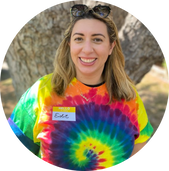
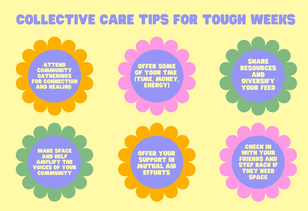
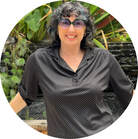
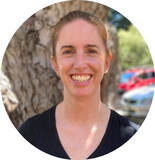
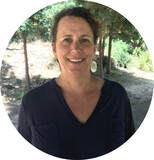
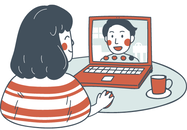



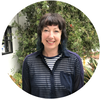
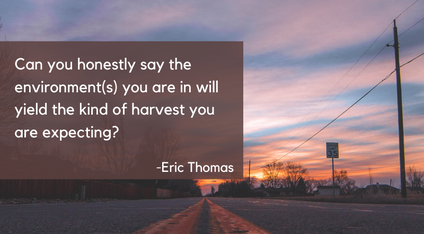

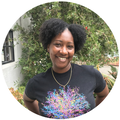
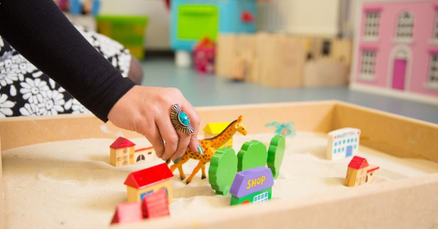
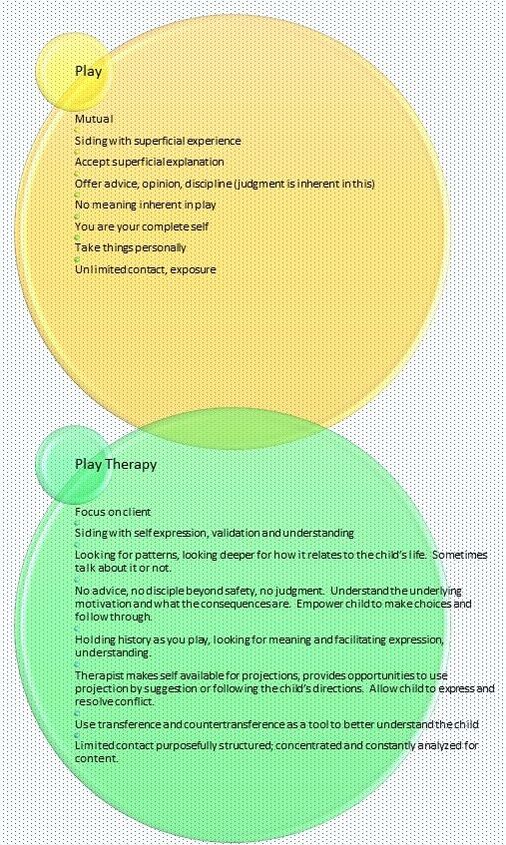

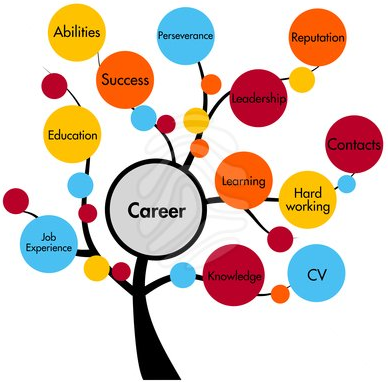
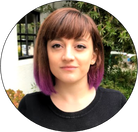
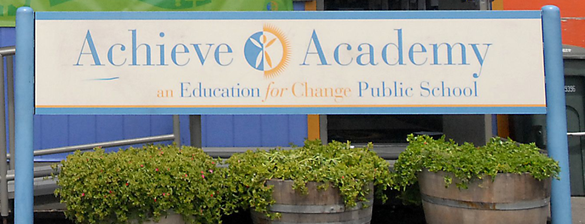
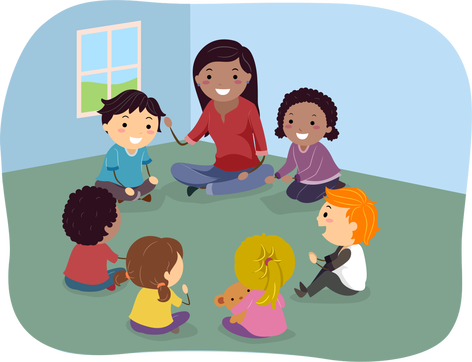
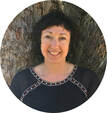
 RSS Feed
RSS Feed